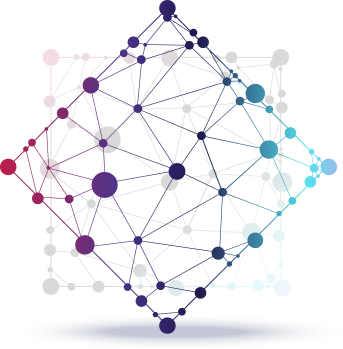- Signals Flare: Vital updates and breaking news impacting global events now.
- The Shifting Landscape of Global Economics
- The Impact of Supply Chain Resilience
- Geopolitical Tensions and International Relations
- The Role of International Organizations
- Technological Innovation and its Societal Impact
- The Future of Work in the Digital Age
- Climate Change and Environmental Sustainability
- The Transition to a Circular Economy
Signals Flare: Vital updates and breaking news impacting global events now.
In an increasingly interconnected world, staying informed about current events is more crucial than ever. The rapid dissemination of information, often referred to as ‘news‘, shapes public opinion, influences policy decisions, and impacts daily life across the globe. From geopolitical shifts and economic trends to scientific breakthroughs and cultural movements, a constant stream of developments unfolds, demanding our attention and critical analysis. Understanding these events, their causes, and potential consequences is vital for navigating the complexities of the 21st century.
The speed at which information travels today presents both opportunities and challenges. While instant access to breaking events empowers citizens and fosters transparency, it also creates fertile ground for misinformation and sensationalism. Therefore, cultivating a discerning approach to media consumption – focusing on reputable sources and verifying information – is paramount. This article delves into a range of important developments, offering insight into the factors shaping our world and the critical issues demanding our attention.
The Shifting Landscape of Global Economics
The global economic landscape is currently undergoing significant transformation. Factors such as inflation, supply chain disruptions, and geopolitical instability are contributing to a period of uncertainty. Central banks around the world are grappling with the challenge of curbing inflation without triggering a recession. The delicate balance between controlling price increases and maintaining economic growth requires careful calibration of monetary policy. These efforts have a ripple effect, impacting investments, trade, and consumer spending. Furthermore, the rise of emerging economies and the increasing importance of digital currencies are reshaping the traditional financial order.
| United States | 2.1 | 4.1 | 3.7 |
| China | 5.2 | 0.2 | 5.2 |
| Germany | 0.3 | 6.9 | 3.1 |
| Japan | 1.9 | 2.5 | 2.6 |
The Impact of Supply Chain Resilience
Recent global events have highlighted the fragility of global supply chains. Disruptions stemming from the COVID-19 pandemic, geopolitical conflicts, and natural disasters have exposed vulnerabilities in just-in-time inventory management and reliance on single sourcing. Companies are now actively diversifying their supply bases, investing in regional production capabilities, and building greater resilience into their operations. This trend is driving increased costs in the short term but promises greater stability and security in the long run. Strengthening supply chain resilience is not merely a business imperative, it’s becoming a matter of national economic security.
The shift towards more resilient supply chains involves a multi-faceted approach. This includes mapping supply chain networks to identify critical dependencies, implementing risk management strategies to mitigate potential disruptions, and investing in digitalization to improve visibility and coordination. Building stronger relationships with suppliers, fostering collaboration across the supply chain, and prioritizing sustainability considerations are also essential elements. Furthermore, governments are playing a role through policies designed to incentivize domestic production and promote diversification.
The focus on regionalization and near-shoring is a significant aspect of this trend. Companies are increasingly looking to bring production closer to home, reducing transportation costs, minimizing lead times, and enhancing control over their supply lines. This shift also has implications for employment, potentially creating new jobs in developed economies. However, ensuring access to skilled labor and maintaining cost competitiveness remain major challenges.
Geopolitical Tensions and International Relations
The international arena is marked by escalating geopolitical tensions, driven by competing national interests, ideological differences, and the pursuit of strategic advantage. Conflict zones around the world pose significant humanitarian challenges and threaten regional stability. The rise of new powers and the reshaping of alliances are altering the global balance of power. Effective diplomacy, multilateral cooperation, and adherence to international law are crucial for managing these tensions and preventing escalation. Navigating these complex dynamics requires a nuanced understanding of the historical, political, and economic factors at play.
- Increased Military Spending: Several nations have announced significant increases in their defense budgets.
- Diplomatic Strain: Relations between major global powers are currently experiencing considerable strain.
- Cyber Warfare: The threat of cyberattacks on critical infrastructure is escalating.
- Regional Conflicts: Prolonged conflicts in various regions continue to cause significant human suffering.
The Role of International Organizations
International organizations, such as the United Nations, the World Trade Organization, and the International Monetary Fund, play a vital role in addressing global challenges and fostering cooperation. These organizations provide platforms for dialogue, negotiation, and collective action on issues ranging from peacekeeping and humanitarian assistance to trade and economic development. However, their effectiveness is often hampered by political constraints, funding limitations, and the competing interests of member states. Strengthening the capacity and legitimacy of international organizations is essential for tackling 21st-century problems.
The United Nations remains the cornerstone of the multilateral system, but its ability to resolve conflicts and enforce international norms is often limited by the veto power of the five permanent members of the Security Council. Reforming the Security Council to make it more representative and accountable is a long-standing debate. The World Trade Organization faces its own challenges, including disputes over trade practices and the rise of protectionism. Strengthening the dispute settlement mechanism and promoting free and fair trade are key priorities.
Furthermore, international organizations are increasingly grappling with non-traditional security threats, such as climate change, pandemics, and terrorism. Addressing these complex challenges requires innovative approaches, cross-border collaboration, and a commitment to sustainable development. Effective multilateralism is not merely a matter of idealism, it’s a pragmatic necessity in an interconnected world.
Technological Innovation and its Societal Impact
Rapid technological innovation continues to reshape every aspect of our lives, from communication and transportation to healthcare and education. Artificial intelligence (AI), machine learning, and automation are transforming industries, creating new opportunities, and disrupting established jobs. The ethical implications of these technologies, including issues of bias, privacy, and accountability, are becoming increasingly urgent. Harnessing the benefits of technological innovation while mitigating its risks requires thoughtful regulation, responsible development, and a focus on human-centered design.
| Artificial Intelligence | Increased efficiency, automation of tasks, improved decision-making | Job displacement, bias, privacy concerns |
| Biotechnology | Advancements in healthcare, disease prevention, sustainable agriculture | Ethical dilemmas, potential misuse, environmental risks |
| Renewable Energy | Reduced carbon emissions, energy independence, sustainable development | Intermittency, infrastructure costs, land use |
The Future of Work in the Digital Age
The digital revolution is fundamentally changing the nature of work. Automation is displacing routine tasks, while new jobs are emerging in fields such as data science, software development, and AI engineering. The skills required to thrive in the 21st-century workforce are evolving rapidly, emphasizing creativity, critical thinking, problem-solving, and digital literacy. Investing in education and retraining programs is crucial for equipping workers with the skills they need to adapt to these changes. Lifelong learning is becoming the new norm.
The rise of the gig economy and remote work is also transforming the employment landscape. While these trends offer greater flexibility and autonomy, they also raise concerns about job security, benefits, and worker protections. Finding ways to ensure fair labor standards, provide adequate social safety nets, and promote work-life balance in the digital age is a significant challenge. The concept of a traditional, full-time job is becoming increasingly blurred.
Furthermore, the increasing prevalence of automation raises fundamental questions about the future of income distribution and the need for social safety nets. Exploring concepts such as universal basic income and alternative economic models may become necessary to address the potential for widening income inequality. Adapting to the changing nature of work requires a proactive and comprehensive approach.
Climate Change and Environmental Sustainability
Climate change remains one of the most pressing challenges facing humanity. The impacts of rising temperatures, extreme weather events, and sea-level rise are already being felt around the world. Reducing greenhouse gas emissions, transitioning to renewable energy sources, and adapting to the unavoidable consequences of climate change are essential for safeguarding the planet for future generations. The need for urgent action is underscored by the growing scientific consensus on the severity and urgency of the situation. International cooperation, technological innovation, and individual behavioral changes are all critical components of a comprehensive response.
- Reduce Greenhouse Gas Emissions: Implement policies to limit carbon emissions from power plants, transportation, and industry.
- Invest in Renewable Energy: Transition to cleaner energy sources, such as solar, wind, and hydro power.
- Promote Energy Efficiency: Improve energy efficiency in buildings, transportation, and industry.
- Enhance Climate Resilience: Prepare for the impacts of climate change by investing in infrastructure and disaster preparedness.
The Transition to a Circular Economy
The traditional linear economy – based on the ‘take-make-dispose’ model – is unsustainable in the long run. A shift towards a circular economy, which emphasizes reuse, repair, refurbishment, and recycling, is essential for reducing waste, conserving resources, and minimizing environmental impact. Promoting sustainable consumption patterns, extending product lifecycles, and designing products for durability and recyclability are key elements of this transition. Circular economy principles can be applied across a wide range of industries, from manufacturing and construction to agriculture and food production.
The circular economy also creates new economic opportunities. Repair businesses, recycling facilities, and innovative product design companies are all examples of businesses that can thrive in a circular economy. Supporting these businesses and creating favorable policy environments are essential for accelerating the transition. Furthermore, educating consumers about the benefits of circularity and encouraging them to make more sustainable choices is crucial.
Implementing the circular economy requires collaboration across the entire value chain, from producers and manufacturers to consumers and waste management providers. Developing effective recycling infrastructure, reducing packaging waste, and promoting the reuse of materials are all essential steps. The circular economy offers a pathway towards a more sustainable and resilient future.
The world is brimming with change, each shift sparking a cascade of consequences requiring informed understanding and careful consideration. By remaining aware of these developments and building upon collaborative solutions, we can better navigate the complexities of the present and shape a more sustainable and equitable future for all.



